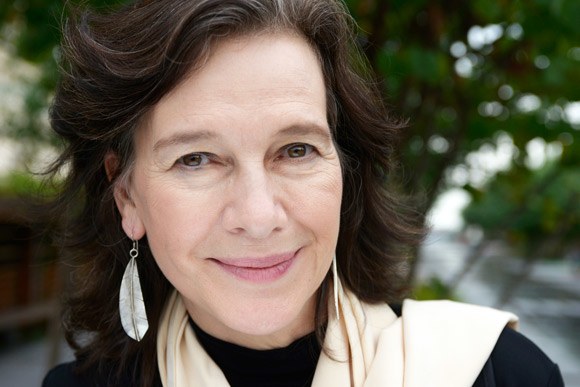
Louis Erdich was born in 1954 in Little Falls, Minnesota. She was the oldest child from a large family of seven. Her parents were teachers who taught at a boarding school in Wahpeton, North Dakota, established by the Bureau of Indian Affairs. Erdich’s Native American identity comes from her mother’s side, who was a Chippewa Indian, and her grandfather, who served as a tribal chairman for the Turtle Mountain Band of Chippewa Indians. Erdich is currently a member of the same Turtle Mountain Band of Chippewa Indians.
Her passion for writing showed at a young age, and her father fueled that passion by offering her a nickel for each story she wrote. Writing runs in the family, and her sister is also a published poet.
Erdich also made history through her education, becoming part of the first class of woman admitted to Dartmouth College, where she received her degree in English. She met her husband at Dartmouth, the director of the new Native American Studies program. She then enrolled at Johns Hopkins University, getting her Masters in Writing Seminars.
Erdich is author of 15 novels, and numerous collections of poetry, children’s books, and short stories. Her first novel Love Medicine was published in 1984 and went on the win that year’s National Book Critics Circle Award. The novel was also featured on the National Advanced Placement Test for Literature.
Since then, her other novels have gained recognition and received many different awards. In 2000, she received the Lifetime Achievement Award from the Native Writers’ Circle of the Americas. In 2005, she became the Associate Poet Laureate of North Dakota. Her novel The Plague of Doves, published in 2008, was a finalized for the Pulitzer Prize for Fiction.
Just this year, Erdich released her novel Future Home of the Living God. This novel is set in a dystopic world where “evolution has reversed itself.” The book follows protagonist Cedar and “as Cedar goes back to her own biological beginnings, society around her begins to disintegrate, fueled by a swelling panic about the end of humanity.”
While this novel centers around a dystopian future, Erdich still incorporates elements of her Native American heritage. According to a review from San Francisco Chronicle, “The interplay between Native and white culture continues to fascinate Erdich. Cedar Hawk blends an admiration for liberation theology, exemplified by a magazine she edits, with the traditional Ojibwe virtues of truth, respect, love, bravery, generosity, wisdom, and humility.”
Other themes, like motherhood and womenhood, also emerge in her writing. As Erdich explained in an interview with The Rumpus, “I think women are doing the most interesting writing right now, the most interesting art. I see everything through this lens, of women finally taking their place in the world,” (read the rest of the interview here).
Erdich’s writing will continue to impact and give a voice to these different groups, showing the ways these different identities can work in the world of fiction, even in the dystopian genre.